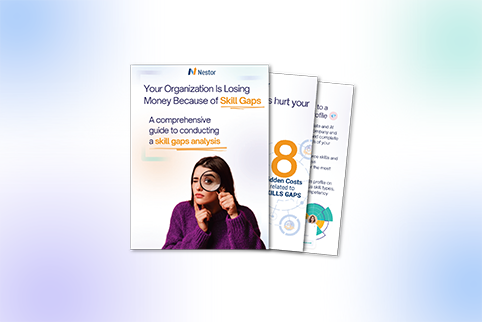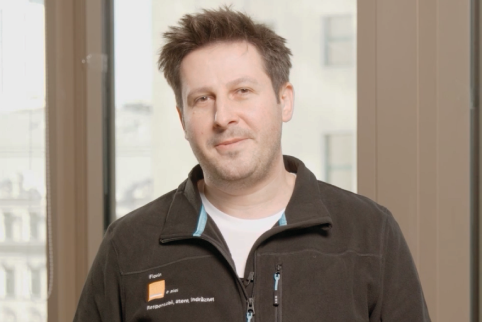
We live in a time when HR and people leaders should prioritize effective strategies to support employees in combating the negative effects of stress and coping with uncertainty and change. And while creating a climate of trust and belonging might certainly help, it is equally important to cultivate the personal behaviors and critical skills that help employees manage any kind of situation, regardless of the external environment. But why has stress management become more important than ever?
According to the American Psychological Association’s report, Stress in America survey, about half of U.S. adults say that the uncertainty of the pandemic has made planning for their future feel impossible.
Nearly a third say their stress levels are so high that they sometimes struggle even with basic decisions. On top of pandemic-related stress, the vast majority of U.S. adults are reporting new stress related to the war in Ukraine, including worries about inflation and global uncertainty.
The probability of entering a recession coupled with ongoing mass layoffs is creating even more anxiety among employees raising concerns about job security. Everyone nowadays is dealing with stress and to a certain extent stress can be beneficial. But when stress and anxiety turn chronicle, they can have a negative impact on the workplace.
Besides the impact on decision-making, studies have shown that a high level of stress correlates with lowered employee productivity, high turnover, and absenteeism. In addition, a recent Gartner research shows that employees are experiencing change fatigue, and their “ability to absorb change has plummeted precisely at the time when more organizations need change to reset.”
With all of this in mind, let’s take a closer look at some of the critical skills that help employees remain balanced and perform at their best even when outside situations are challenging:
#1 Self-Reflection
Although this concept is more often associated with our personal lives, taking a step back and allowing ourselves time to self-reflect has positive outcomes in the workplace as well. Especially when dealing with change, reflecting on our own reactions related to exterior events might give us hints on how to act better in the future.
Cultivated over time, this behavior makes room to course-correct our actions and constantly evolve as professionals and humans, by learning from past mistakes.
#2 Focus on results
Number #2 on our list of critical skills for managing stress is focus; focus refers to our ability to block out external distractions, which in today’s digital, always-connected, and fast-paced world can be overwhelming and difficult. The ability to focus can be described by many forms of attention like concentration, free association, or being present in the moment.
One of the enemies of focus is a practice most of us engage in daily, called multitasking. In the last decade, studies have shown that multitasking is counterproductive and happens at the cost of our deep focus. One of the first steps to staying focused is setting clear objectives and goals and working steadily toward achieving them.
#3 Critical thinking
Critical thinking has been constantly cited as one of the critical skills one should master in the modern workplace. In a nutshell, the concept of critical thinking refers to our ability to accurately deal with problem-solving or decision-making in complex situations as opposed to jumping directly to conclusions.
Split into smaller components, critical thinking includes observing, wondering, inferring, experimenting, analyzing arguments, and deciding. Put in this context, it’s easier to understand what actions and attitudes we can exercise to amplify our efforts into better critical thinking:
- Thorough research
- Open-mindedness
- Curiosity in asking questions
- Skepticism
- Positive debates
- Treating with objectivity multiples perspectives
- Identifying our own biased presumptions
- Correlations
- Creativity
Developing critical thinking is particularly important during periods of high uncertainty when our brain tends to resort to old thought patterns, thus impeding us from broadening our horizons and considering all available possibilities.
#4 Flexibility
Number #4 on our list of critical skills for managing stress is flexibility, and one way of describing it is through a comparison with medicine. That’s right! Flexibility “is a medicine against anxiety – a medicine that focuses your mind on possibilities rather than deficiencies.” Looking at this definition, it’s easily understandable why mental flexibility is essential in how we relate to uncertainty, like an economic downturn.
A flexible mindset will perceive any challenge as an opportunity for reinvention, learning from experience and feedback, and embracing novelty and change as the only certainties. People who possess or exercise this skill will adjust more quickly and will be more focused on finding ways to overcome obstacles.
#5 Social connection
In stressful situations, some people might tend to isolate from others and surround themselves with negative thoughts, like the fear of what’s next or losing a job.
The ability to socially connect tends to be correlated with lower stress levels simply because expressing your thoughts is the first step toward accepting your fears and looking for support. Moreover, evidence shows that strong social connection promotes greater motivation, fosters inclusion, and breaks down departmental silos.
#6 Positivity
You’ve probably heard by now about the expression: “the power of positive thinking”. This expression is not just a myth but one of the things successful people have in common. Over time, a lot of studies, articles, and inspirational books have focused on this subject and one conclusion is clear: a positive mindset can have miraculous benefits on health, work, and overall well-being.
By contrast, negativity is a stimulus of chronicle stress, which determines a person to focus on problems rather than solutions. Moreover, a negative person can be toxic in the workplace by influencing others as well. Positivity is especially important during rough times. Cultivated over time, a positive mindset and world view can turn into a real catalyst for motivation, progress, and risk tolerance.
Final thoughts
The type of critical skills and behaviors that help employees successfully navigate stress and ongoing disruptions have become vital. Jobs of the future mostly rely on these types of skills and organizations are eager to track and understand how they are distributed among their workforce.
How does your organization ranks for these soft skills and behaviors? Do your employees have the necessary abilities to adapt to continuous challenges and disruptions? If you want to gain visibility over skills at the organizational level and you’re just getting started, we’re always here to help.








